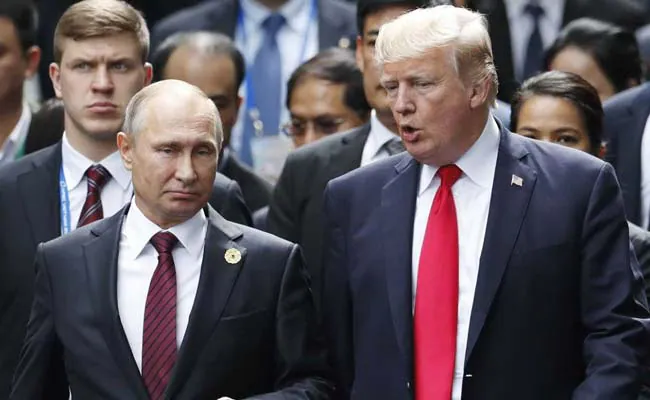In a whirlwind week of diplomacy, U.S. and Russian leaders have dramatically shifted the geopolitical landscape, raising questions about the future of global alliances and security.
The key events—starting with a phone call between former U.S. President Donald Trump and Russian President Vladimir Putin on February 12, followed by a significant U.S.-Russia summit in Saudi Arabia—have upended traditional alliances, heightened tensions in Europe, and positioned Russia at the center of world politics.
A Week of Dramatic Diplomatic Moves
The first significant development came with Trump and Putin’s phone conversation on February 12. During this call, both leaders expressed a strong interest in revitalizing U.S.-Russia relations, a move that sent ripples through the international community. The conversation was followed by a series of high-stakes meetings at the Munich Security Conference, where a growing divide between the United States and Europe became apparent. The summit in Saudi Arabia marked the first high-level face-to-face engagement between U.S. and Russian officials since Russia’s full-scale invasion of Ukraine in 2022.
The strategic meetings in Riyadh symbolized a shift in global diplomacy, with Russia successfully securing a seat at the negotiating table despite facing international sanctions and Western isolation efforts. Russian media quickly capitalized on this narrative, portraying the meetings as proof that efforts to sideline Moscow had failed.
European Concerns and Reactions
The developments have sparked deep concerns across European capitals, particularly in Kyiv, where officials fear that potential concessions by Washington could come at the expense of Ukraine’s sovereignty and security. Moscow’s pro-Kremlin newspaper Moskovsky Komsomolets suggested that Trump, if reelected, would be more likely to prioritize U.S.-Russia relations over European alliances, potentially forcing European nations to bear the brunt of diplomatic compromises.
European leaders, already wary of Washington’s shifting priorities, have called for unity and increased defense spending. German Chancellor Olaf Scholz and French President Emmanuel Macron both reaffirmed their commitment to supporting Ukraine and strengthening NATO’s eastern flank.
Meanwhile, NATO Secretary-General Jens Stoltenberg urged member states to remain vigilant against Russian attempts to sow discord within the alliance.
Moscow’s Perspective: A Diplomatic Victory
Within Russia, the narrative has been one of triumph. Kremlin-backed media outlets have framed the recent engagements as a clear indication that Russia remains a formidable global power.
Moscow has long sought to position itself as an indispensable player in international diplomacy, and the latest interactions with Washington serve as a testament to that ambition.
Ordinary Russians, however, appear more cautious. While some see the potential for improved relations with the U.S., others remain skeptical.
Others expressed hope that diplomatic negotiations might lead to an easing of economic hardships exacerbated by sanctions and war-related inflation
Implications for Ukraine and Global Security
For Ukraine, the renewed discussions between Moscow and Washington represent both a challenge and an opportunity. Kyiv has expressed concerns that any deal between the two major powers might involve pressure on Ukraine to make territorial concessions.
Ukrainian officials have reiterated their stance that peace talks must be conducted on their terms, emphasizing the importance of maintaining sovereignty and territorial integrity.
Meanwhile, the broader security implications of the U.S.-Russia thaw are still unfolding. Analysts suggest that Trump’s diplomatic overtures toward Putin could signal a shift in U.S. foreign policy, potentially reducing American involvement in European security affairs.
This scenario could embolden Russia to push for further territorial gains or demand changes to the post-Cold War European security order.
What Comes Next?
The world is now watching closely for further developments, particularly the anticipated face-to-face meeting between Trump and Putin.
While no official date has been set, such a summit would mark a defining moment in global diplomacy, with wide-ranging implications for international relations.
Whether these renewed engagements will lead to a lasting peace in Ukraine or simply serve as a stage for further geopolitical maneuvering remains to be seen.
One thing is certain: in just one week, Putin and Trump have managed to shake up the world, redrawing the lines of global power and forcing nations to rethink their strategic alliances.

